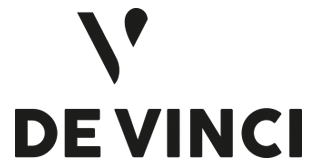@article{harfouche_2727,
title = {Guest editorial: Cutting-edge technologies for the development of Asian countries},
author = {Antoine Harfouche and Peter Saba and Georges Aoun and Samuel Fosso Wamba},
url = {https://www.emerald.com/insight/content/doi/10.1108/JABS-04-2022-494/full/html},
year = {2022},
date = {2022-03-01},
journal = {Journal of Asia Business Studies},
volume = {16},
number = {2},
pages = {225-229},
abstract = {Artificial intelligence (AI), Internet of Things (IoT)/Internet of Everything, blockchain and Big Data are expected to disrupt public and private sectors in Asian countries. If well implemented, these cutting-edge technologies can promote socioeconomic and ecological developments (Fosso Wamba et al., 2015) and enhance the quality of life (De-Arteaga et al., 2018) in Asian countries. They have the potential to bring great value to Asian countries in terms of reshaping competitive advantages (Akter et al., 2020), improving how organizations respond to disasters (Ofli et al., 2016; Zhou et al., 2018) and emergency (Johnson et al., 2021a), reducing inequalities (Korinek and Stiglitz, 2019), developing new knowledge (Harfouche et al., 2017), improving human health (Guo and Li, 2018; Johnson et al., 2021b; Stone et al., 2018; Wahl et al., 2018), improving education (McCalla, 2004), increasing participation in smart cities (Viale Pereira et al., 2017), reshaping agriculture (Harfouche et al., 2019) and empowering farmers by increasing their economic intelligence (Saba et al., 2018). It can also enhance microfinance and social entrepreneurship (Popkova and Sergi, 2020).
Along with these potential positive impacts, cutting-edge technologies can inevitably have negative consequences. As these technologies were designed in developed countries, they could have been built intentionally or inadvertently with biases. If they were created with a bias or their training data collected from different countries, they could potentially produce biased results in the context of developing countries. This reality could lead to unintended consequences such as increased discrimination and racism, inequalities, low security, reduced privacy, digital divide and lack of national sovereignty.
The special issue tackles the potential impact of cutting-edge technologies in Asia, shedding light on how these technologies are adopted and implemented, and their effects and causes on the strategic, operational and technical levels.},
keywords = {},
pubstate = {published},
tppubtype = {article}
}













